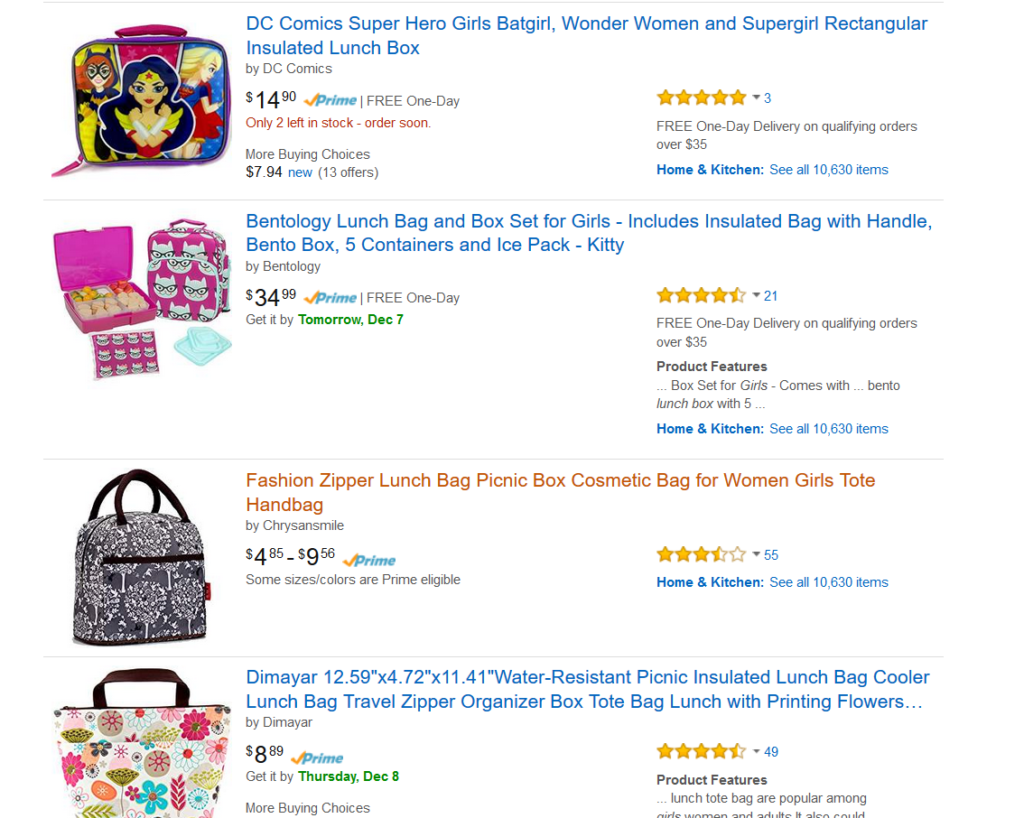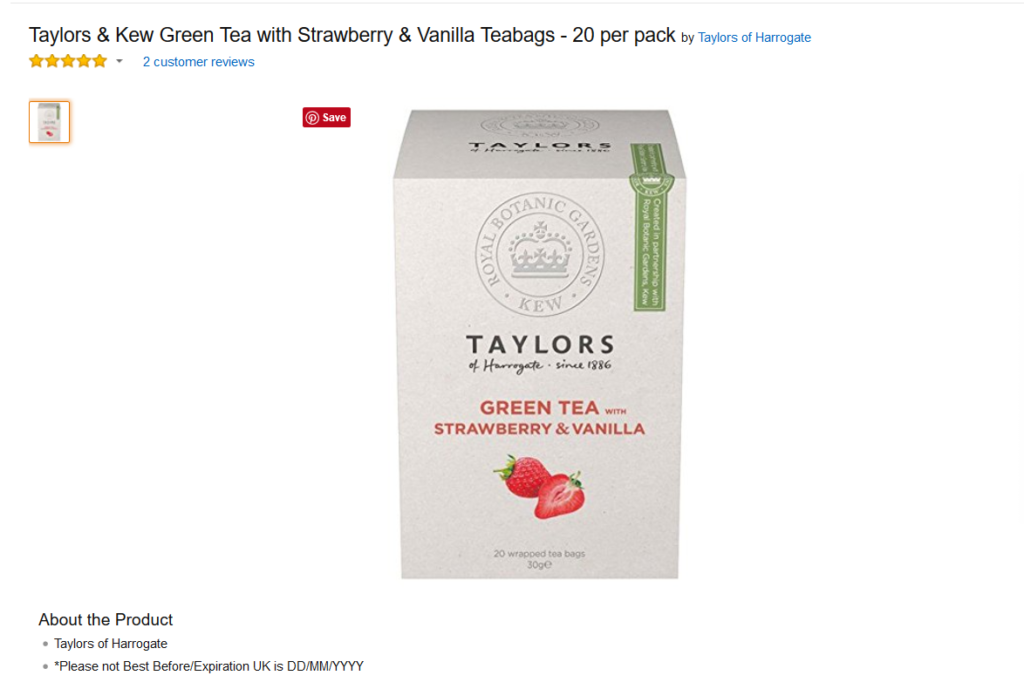We’ve arrived at another Tuesday, and that means another edition of Typo Tuesday! Today I have three simple entries — just things I happened to notice.
First, we have an ad I saw on Facebook:

I have not bought this product and have no opinion on it, but this ad makes the common error of adding a random apostrophe to a word that ends in “s” — in this case, “kid’s.”
When do we use apostrophes? We use them to make a noun possessive (“the kid’s helmet is white”) or to indicate a contraction (“the kid’s going to break her arm if she falls while skating”).
We do not use apostrophes to indicate a plural noun. That’s what they did in this case. Simple mistake, but one I noticed!
Next, we have an Amazon.com listing I saw when I was shopping for a new lunch box for my daughter:

This typo is also very simple — they spelled Wonder Woman as “Wonder Women.” I’m not an expert on the character, but I’m pretty sure there’s only one Wonder Woman, and certainly there’s only one in the corresponding picture. I think search software has gotten pretty good these days at finding similar variations of names and topics, but it’s possible that someone searching for a Wonder Woman product might miss out because of a simple spelling error.
I think search software has gotten pretty good these days at finding similar variations of names and topics, but it’s possible that someone searching for a Wonder Woman product might miss out because of a simple spelling error.
Finally, this last screenshot is of another Amazon.com ad:

Let me start by saying that I did buy this product and highly recommend it! The tea is very light and naturally sweet without needing to add anything to it. At least when I bought it, it was an import product so I had to wait a few extra days for shipping. First world problems!
The only problem is that the description is very clunky. The last line says, “Please not Best Before/Expiration UK is DD/MM/YYYY.” The meaning of this is simple; they’re trying to explain to American customers that dates in the UK are written day/month/year as opposed to the American way of month/day/year. They don’t want Americans to buy the tea and mistakenly think it’s expired.
Looking at this again, I think the main mistake is the simplest of typos that left the “e” off “note.” When I first read it, however, I wasn’t sure what they were even trying to say. I’ve seen some very poorly written ads that were clearly written by people whose first language is not English, but I wouldn’t expect that of a British product being ordered from the UK. I’d probably change a bit more to clarify: “Please note that best before/expiration dates in the UK are written DD/MM/YYYY.”
It just goes to show that even a single missing letter can really mess up a description!